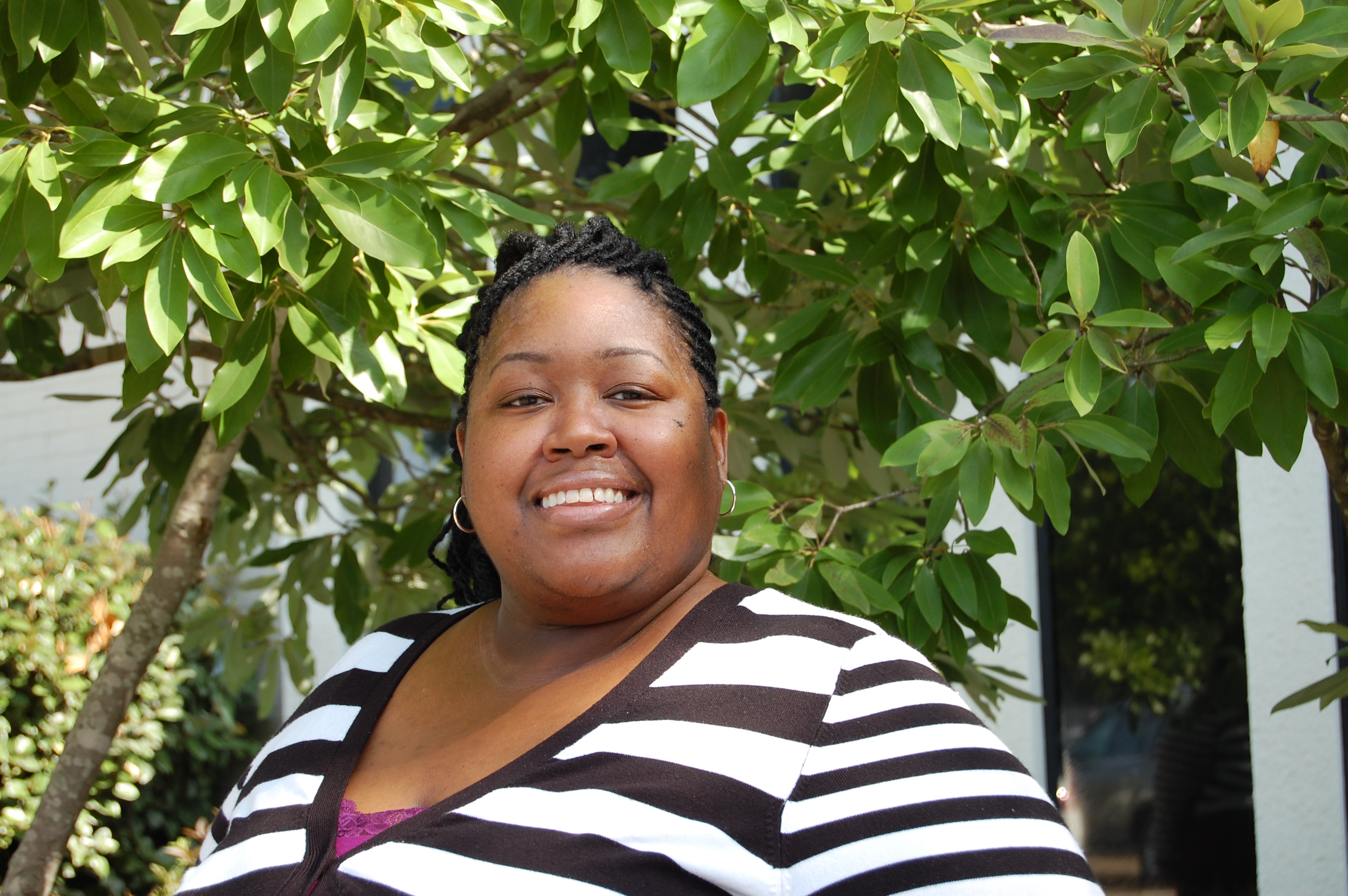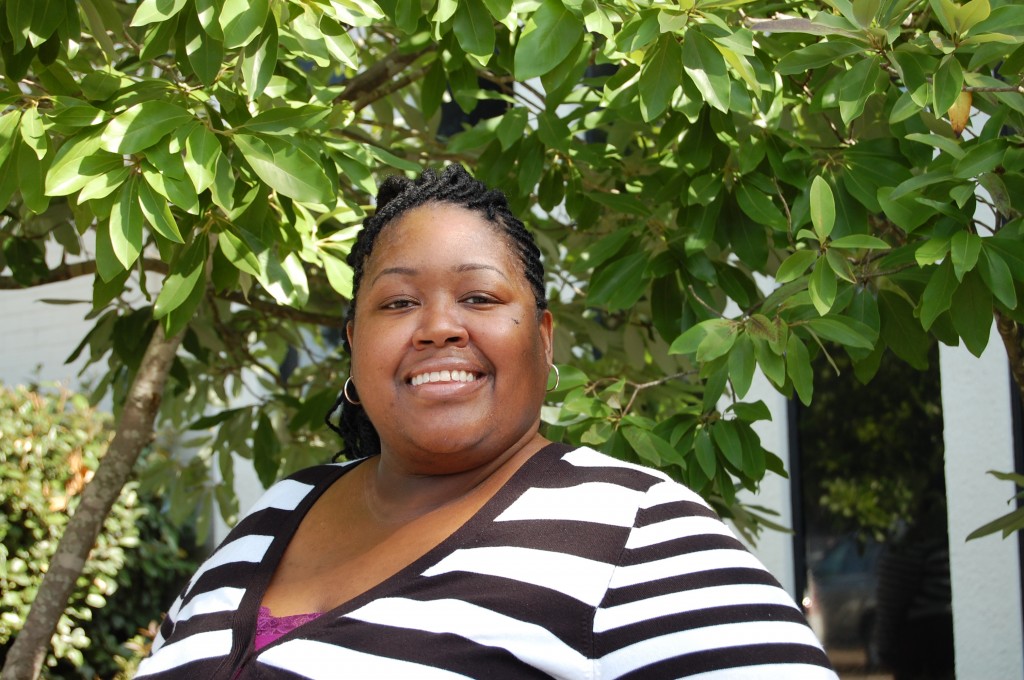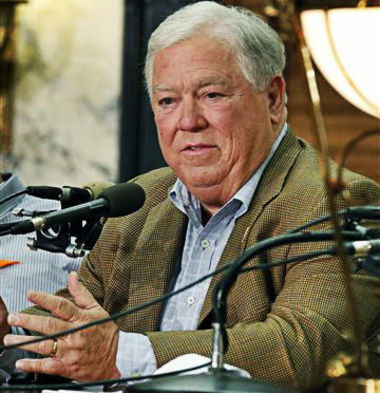
This article is one in a series that tells the stories of Entergy employees and their experiences during the Hurricane Katrina restoration.
 It’s been 10 years since Hurricane Katrina changed the lives of thousands, leaving each with his or her own unique story. For Chiquentia Jenkins, lead customer contact representative, she’s finally found that silver lining on the dark cloud that hung over Katrina’s victims for so very long. Here’s her story.
It’s been 10 years since Hurricane Katrina changed the lives of thousands, leaving each with his or her own unique story. For Chiquentia Jenkins, lead customer contact representative, she’s finally found that silver lining on the dark cloud that hung over Katrina’s victims for so very long. Here’s her story.
On the afternoon of Aug. 26, 2005, supervisors in Entergy’s New Orleans call center called a brief emergency meeting. They advised employees to go home to their families and prepare for the storm.
“I remember going out with my friends that night,” said Jenkins. “We didn’t think it was going to be that bad. We were always told to evacuate, and then we’d spend the money to get out of town and nothing would happen.”
On Saturday, when call center supervisors released employees until further notice, Jenkins started paying closer attention.
“I remember hearing people comparing Katrina to Betsy and Camille,” she noted. “Growing up, I’d heard my parents talking about those two storms. I filled my tank up with gas, got some money out of the bank, packed my bags and headed for Texas.”
Because Jenkins evacuated early on Saturday, she made good time to Baytown, Texas, where she stayed with a friend. Her family, however, didn’t evacuate. Her mom, two brothers, godmother and godsister just didn’t have a place to go.
Once the hurricane hit, Jenkins was glued to the television. Images were worrisome, especially considering she couldn’t get in touch with her family. With communications down, Jenkins called her family over and over, hoping frantically that this time, the call would go through.
“When you could reach someone, it was only for a second,” she said. “Finally, I got a call through to my mom. When I found out that they were actually okay, it started to set my mind at ease.”
With her family accounted for, Jenkins tried to reach her supervisor. Since cell phone reliability was erratic, she found another way.
“I just called the 1-800 number and left a message for her there, telling her where I was and providing the land line number where I could be reached. If she was trying to reach me via cell phone, her chances were slim at best,” said Jenkins.
When the two finally got in touch, Jenkins was sent to work at the call center in West Monroe. She arranged a few days to check on her own home and see her family first.
“You could only get into New Orleans during the daylight hours,” she noted. “As I headed into the city, I saw the National Guard manning food stations and handing out those ready meals.”
Jenkins’ roof had caved in over the kitchen, and the floor had caved in, too. She packed some photographs and other family history, her high school diploma plaque and a few more personal items in her car and headed towards West Monroe.
By this time, call center employees had begun to check on one another. After discovering that a co-worker, Janetta Smith, was stuck in Kenner with no transportation, Jenkins stopped by to help. She reunited with her friend, and the two traveled to West Monroe together.
“Those days were pretty hectic,” said Jenkins. “We were all working long hours, and we were going through the same things as the customers. You understood what they were dealing with. Some of them were in tears, disconnecting their service because they’d lost their homes. Some of them didn’t know whether their home was still standing or not, and they’d ask our advice about what they should do.”
After working in West Monroe for three weeks, Jenkins moved to the Jackson call center.
“Though part of me still wanted to go back to New Orleans, that hope had kind of started to die,” said Jenkins. “I was getting tired of living in hotels, and the company was ready to move us into apartments in Jackson.”
Due to the stressful nature of the situation, Entergy provided counselors to help displaced employees cope. The company also set up an assistance center at Echelon, where displaced employees could request items they needed.
“I’ve been in Jackson now for about 10 years,” added Jenkins. “In my heart, New Orleans will always be home to me, but it’s hard when I go home. It’s not the same, and I still cry about it.”
In recent years, after going through the family history she rescued post-storm, she discovered two relatives lost to Katrina: a grandmother who wouldn’t evacuate and her grandson who stayed behind with her. The grandmother is Jenkins’ distant cousin. She learned about their fate by finding their names among hundreds etched on a Katrina memorial that was mentioned in a news report.
“The storm was bad, but I’ve used the experience as a stepping stone,” Jenkins said. “I bought a home here, made friends, do a lot of volunteering and re-enrolled in school in January 2013.”
Jenkins is now a junior marketing major at Mississippi College, where she is on the Dean’s List and is a member of the Delta Epsilon Iota honor society.
“I’m not happy that the storm happened, but I can now see a blessing in it.”
“In my heart, New Orleans will always be home to me, but I’ve used the experience as a stepping stone. I bought a home here, made friends, do a lot of volunteering and re-enrolled in school. I’m not happy that the storm happened, but I can now see a blessing in it.”
— Chiquentia Jenkins, customer contact representative, lead.



